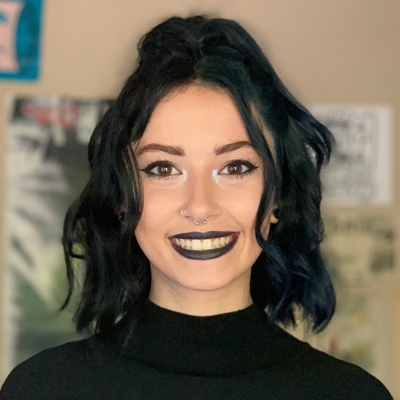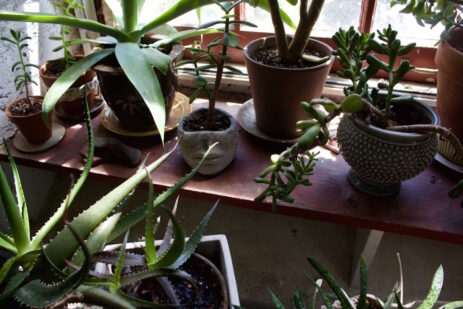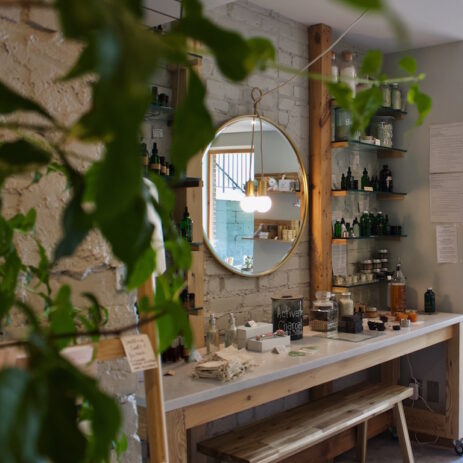No Hate in Our State: Dominique Liu-Sang on Nebraska’s Racial Injustice Movement
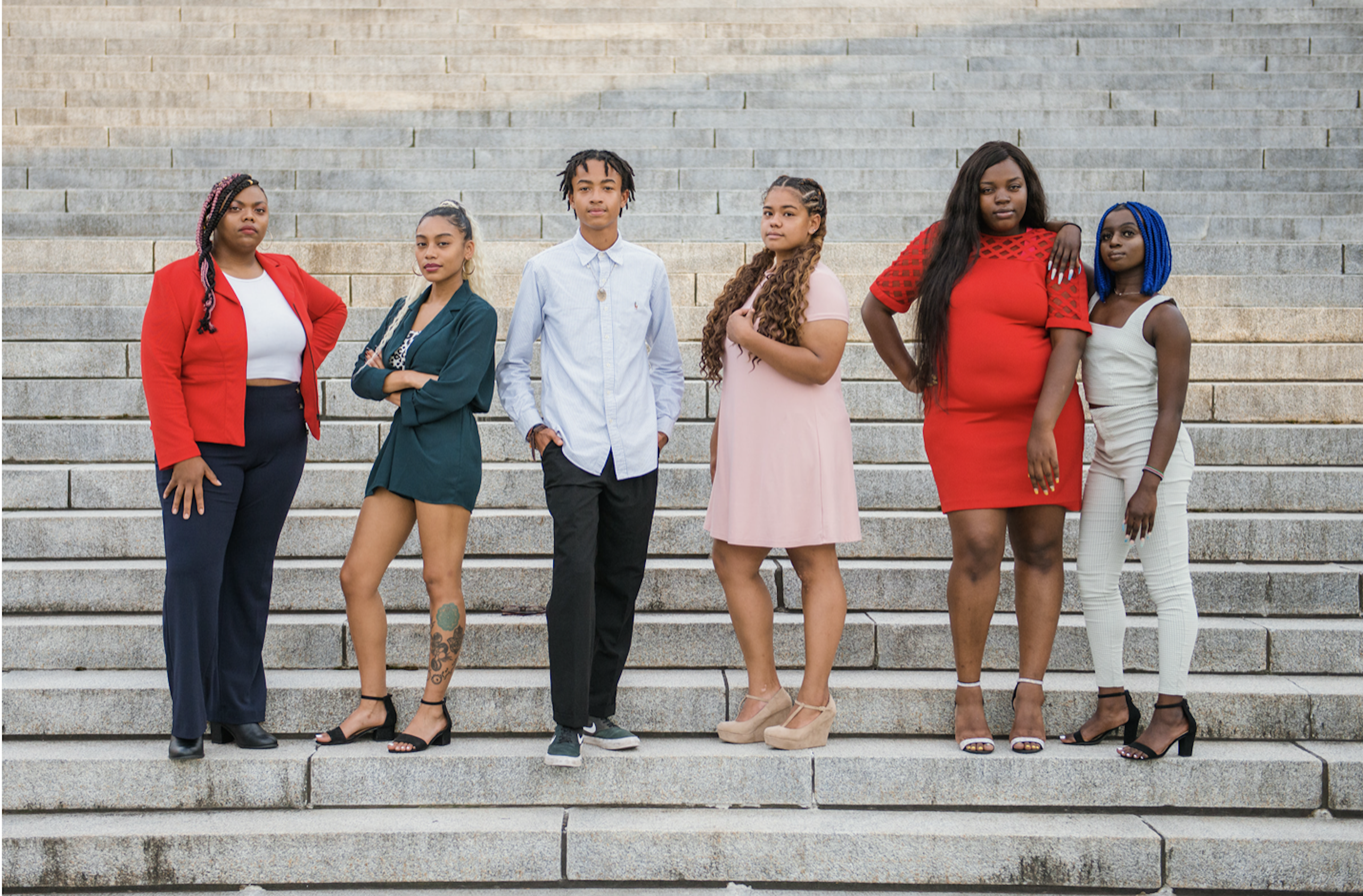
Protestors gathered at the Capitol begin to fill K Street. The group is small, no larger than 40 people, but their energy is fiery and determined. A shout breaks through the chatter, “All racist ways,” is then met with the crowd shouting back, “must die in the grave!” A wave of energy washes over everyone, local activist and Black Leaders Movement organizer Dominique Liu-Sang (21) never fails to raise her voice and spread her contagious passion, especially in moments like these.
She begins leading the march against economic inequality down 16th Street, her energy is boundless as she leads chants. Her demands have fallen on politicians’ deaf ears too many times, she is determined to make sure everyone’s voice is heard.
“The whole reason that we even have these movements is because aside from the black community, even the voices of our everyday citizens are not being heard by our government. They're not being heard by anyone really up in high power,” Liu-Sang says. “We talked to the mayor, but what about our senators? We still haven't heard from Governor Ricketts.”
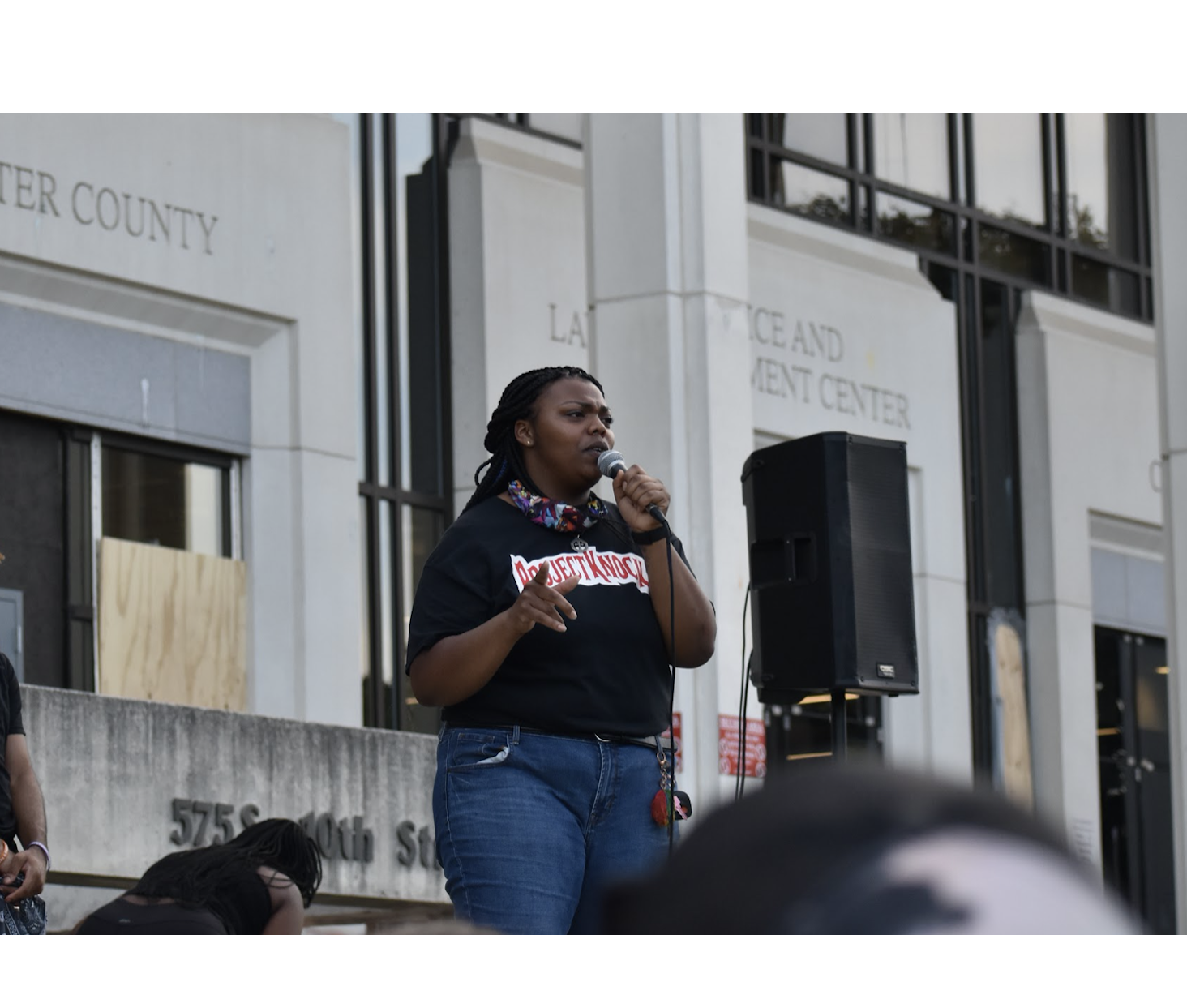
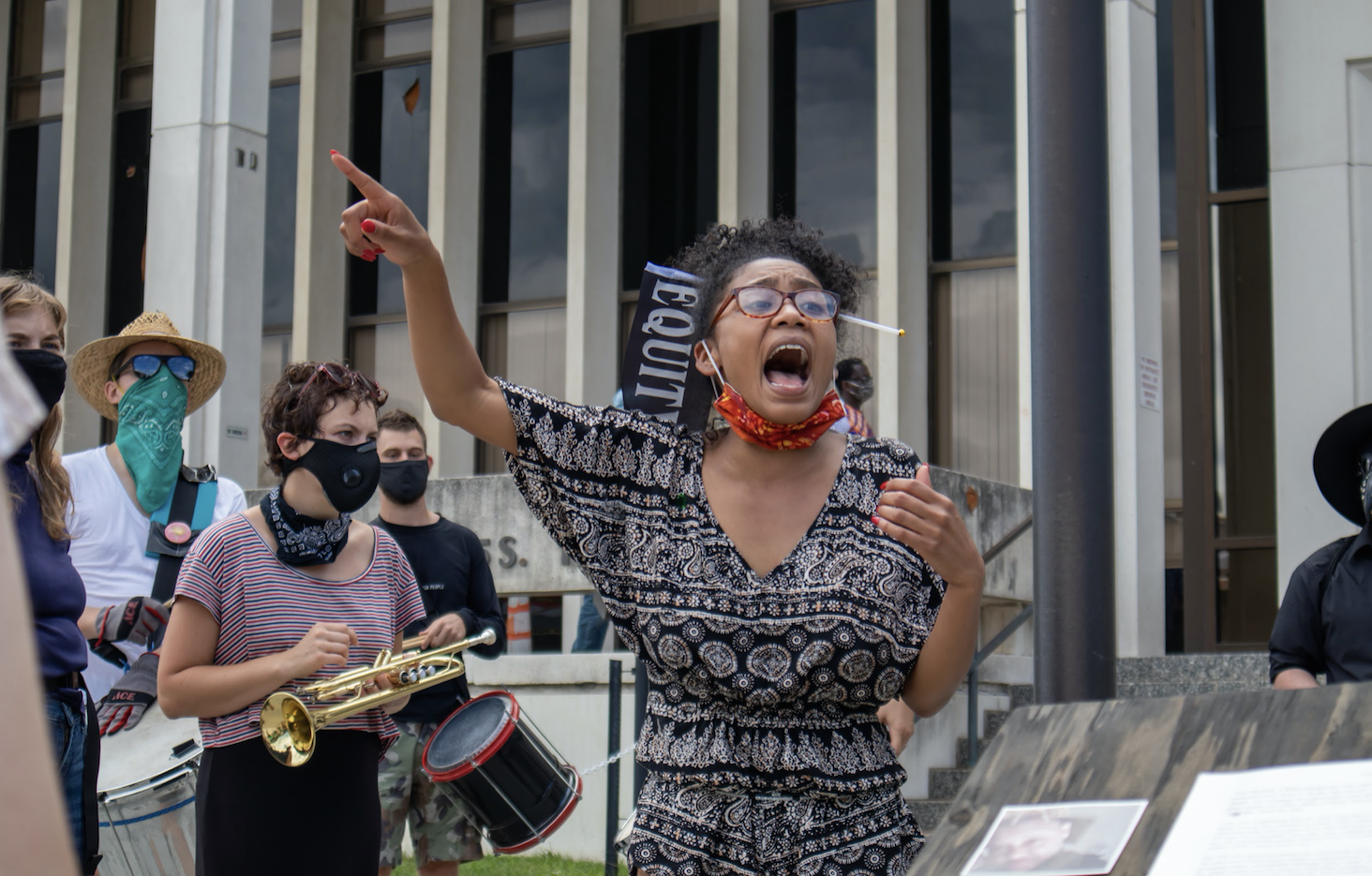
BLM has made many of Nebraska’s white citizens aware of issues like police brutality and systemic racism, but that’s not to mistake these issues as recently risen. For people of color in our community, discrimination is something they face at any given moment and police brutality is a fear they grew up with. Liu-Sang’s first memory of police brutality was back in elementary school, she shared her story with us.
“[The police] went into his house and they dragged his parents out and arrested them. I'm not sure why. I mean, I'm only eight-years-old, and I'm seeing literal parents of a child being dragged out of their houses in handcuffs so I ask the kid what's going on, cause I knew him, you know, he just lives upstairs, and he was just like, 'I don't know what's going on’,” She recalls. “He got in trouble at school.”
From peaceful protests to press conferences, the black community has been silenced and brushed off, but that is merely a symptom of living in a society built by racist institutions. The root problem is the violence and discrimination people of color face, and the disdain they are met with when these problems are called out. The problem is seeing your neighbor be a victim of police brutality, your classmates get metal detected before they enter their school, the kid in your English class getting chased down the hallway by seven school resource officers for not putting his phone away and countless more victims in the media. The problem is knowing that she could be the next one. Simply put, Liu-Sang is tired of living in fear.
“I've seen it happen too many times. People are getting pulled over for something as simple as having a tail light out, and it goes from having a tail light out to we need to search your car. We need to search your car, to you're dead. How does that escalate? Why does this always happen?” She says. “It’s not recent, it's not something that just happened now. This has been happening for years, in the 60s, 70s, 80s, 90s – it's been happening since Jim Crow. Driving while black was a crime back then, it's still a crime these days half the time. Every time I get pulled over, I'm scared I'm gonna be the next one dead.”
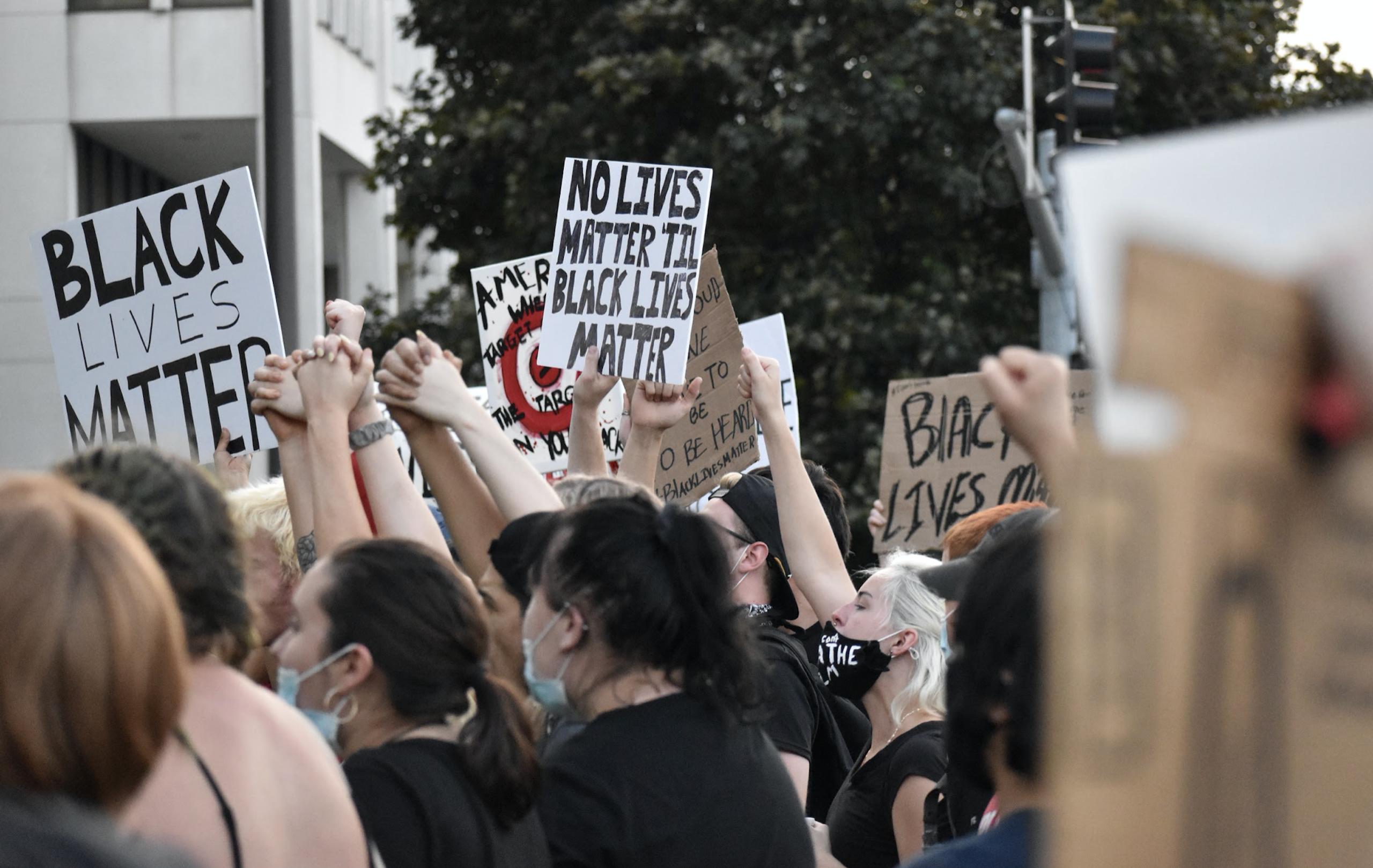
Liu-Sang is not cynical of Lincoln’s community though, she sees the citizens’ want for better and urges them to do better.
“I was impressed by people's effort, their ambition, their dedication, and their willingness to be a part of the community. I mean, all these marches, all these events, all the Zooms, [they] attend everything. It’s like, how do people catch on and stick with it? Because it's what they want to do, what they feel that they need to do and they're doing the right thing. … Don’t show up because it's fun, show up because it means something to you. That's something that we've been preaching and we don't know if it's sticking with our protest,” she says.
For those who are trying to be allies to the movement, she urges that they practice patience. Real, lasting change must happen from the citizens, politicians and institutions in our community that recognize the racial injustice they perpetrate. Slowing down to truly understand your role in racism is how you can dismantle your own racism. Doing so will take time and mistakes, but it will lead to sustainable and genuine change. One way that change can ensue is through conversation, by creating connections with people in the community and listening to each other.
“Listen and learn. It's that simple, and not just letting someone talk to you but actively listening to what they're saying, and understanding who people are,” Liu-Sang urges. “Why are you not willing to just learn? You never know someone's going to tell you something that might change your life for the better. If you're not willing to learn or listen or even take into consideration all of the benefits of even just a little bit of communication, you're being ignorant. You're withholding yourself from furthering the growth of yourself, that's the problem. People just don't want to grow and learn and change.”
Liu-Sang plans to continue her activism through BLM until Nebraska is a welcoming place for everyone. We could all learn something from her dedication to creating a better community and virtue for patience.
Follow @blackleadersmovement on Instagram to keep up with their events, calls to action and educational opportunities.
